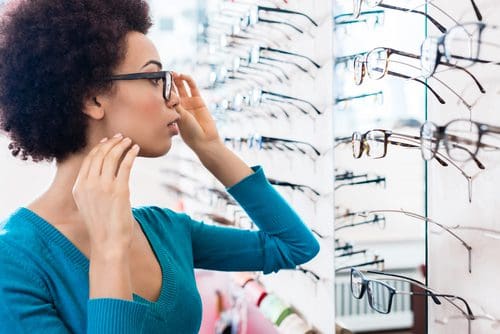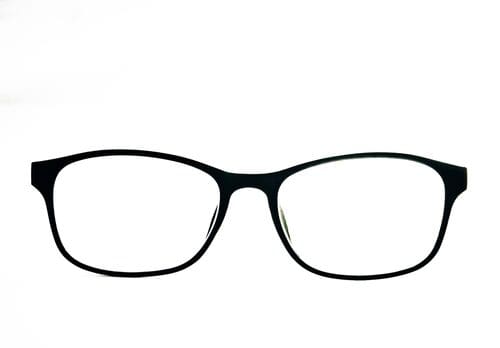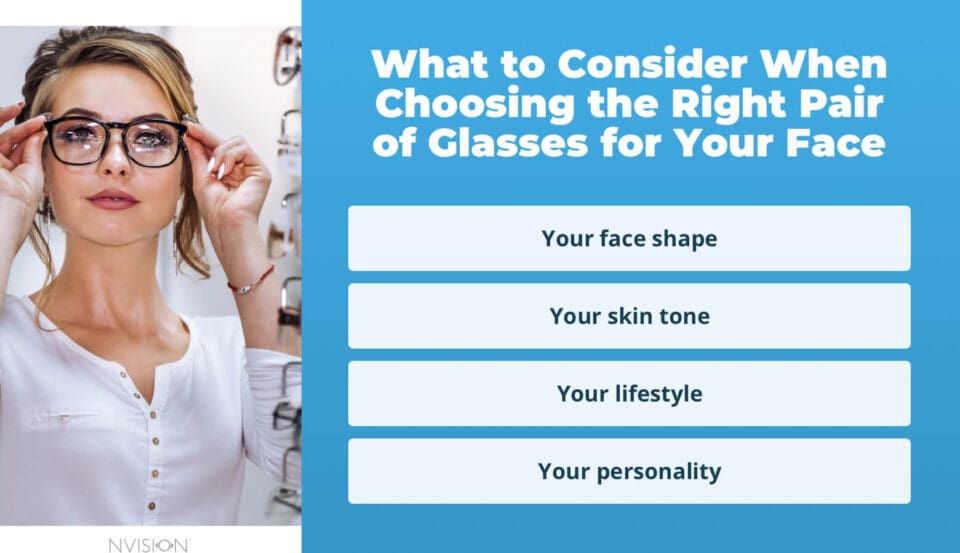What Are the Best Glasses Lenses?
Home / Everything About Glasses /
Last Updated:
These days, consumers have a wide range of glasses lenses and frames available. If you are looking to purchase a new pair of glasses, it can be hard to know where to begin your search.
Lenses vary in materials and treatment capabilities. Frames come in even more varieties.
Fortunately, there are guidelines available to help you select the best pair of glasses for yourself, as well as brands that many people find offer high-quality and attractive glasses. Doctors also weigh in on how to go about looking for a good pair of glasses. Learn more about certain features you should keep as your main priority in 2025.
Table of Contents

What Types of Lenses Are Available?
When putting together the perfect pair of eyeglasses for yourself, it is important to consider what type of lenses you want.
A lot of emphasis is put on the frames, for their comfort and aesthetic effects, but the lenses are just as important. Lenses make a huge impact on your clarity of vision and the safety of the glasses. They also add to the overall look of the glasses.
There are different types of materials to consider when selecting the best lenses for your new set of glasses. Types of eyeglass lens materials include:
- Though it provides excellent optics and is available at a low cost, glass is not used very commonly anymore due to its weight and breakability.
- This is a popular lens option due to being lightweight and low-cost while still providing excellent optics.
- This option is lightweight (even lighter than high-index plastics), low-cost, and highly durable.
- High-index plastics. Thinner than traditional plastic lenses, these lenses are ideal for people looking for thin lightweight glasses that still provide excellent optics.
In addition to which type of lens you choose, there are different types of lens treatments available.
Based on the type of lenses you select, there are different coatings you can consider. Standard eyeglass lens treatments include:
- Anti-scratch coating. This is highly recommended for all lightweight and softer plastic lenses.
- Anti-reflective coating. Recommended for all lens types, this coating helps to eliminate reflection to improve visibility and eye contact.
- UV-blocking treatment. UV protection is built into most high-index plastic and polycarbonate lenses, but you will need to have a UV-blocking coating put on to CR-39 plastic lenses.
- Photochromic treatment. Available for almost all lens materials, this treatment causes lenses to darken automatically in sunlight and return to clear when you go back inside.
What Types of Frames Are There?

When selecting the right frames, factors to consider include:
- Frame size.
- Frame color.
- Frame thickness.
- Frame width.
- Arm width and length.
Types of frames that vary in the above factors include:
- Full-rimmed frames.
- Rimless frames.
- Semi-rimless frames.
The type of statement you want to make with your glasses will help you determine which types of frames are best for you. Look for frames that are functional as well as enjoyable to wear.

How to Choose the Right Glasses for Your Face

No matter what your priorities are, here are some guidelines to help you choose the right pair of frames for you.
- Consider your face shape. For a round face, opt for square or rectangular frames. For an oval face, consider geometric frames with a strong bridge that is wider than the broadest part of your face. For a square face, oval or round glasses help to soften angles and provide good balance. For a heart-shaped face, round or square glasses with a heavier bottom frame line help to balance the shape of the face.
- Consider your skin tone. Select a color for your frames that is closest to your skin tone. Warm, bronze, or golden skin tones match well with tortoise, brown shades, gold, honey, beige, or olive greens. Light, cool skin tones are complemented well by silver, black, pink, purple, mauve, or gray colors.
- Consider your lifestyle. Flexible and durable frames may be most appropriate for people leading active outdoor lifestyles, while some frames and lenses are designed specifically for people who are often on the computer, such as gamers.
- Consider your personality. Make sure your frames say what you want them to about your personality. Sometimes, multiple frames are appropriate to showcase the adventurer in you on the weekends and the professional in you during the workweek.
Do More Expensive Lenses Mean Better Quality?
Not necessarily. It really depends on the type of lens you need. Certain types of lenses, such as high-index plastics, cost more, but they are very lightweight, so the additional cost may be well worth this benefit.
More expensive lenses often mean they have additional features, such as anti-scratch coating or UV-blocking treatment.
The price of frames fluctuate more than the price of lenses. While designer frames may look great, they may not be better quality.
Doctor Recommendations on Glasses Lenses
With nearly 80 percent of Americans over the age of 55 needing prescription lenses, doctors encourage their patients to stay focused on the aspects of glasses that are the most important when shopping for a new pair.
Doctors remind patients to select glasses and lenses based on their prescription and what meets their vision requirements most effectively. Your eye doctor will often be able to make a recommendation on the best lenses for you. High-end brands of fashion glasses provide beautiful products, but make sure they provide the product you need before you pay extra for the label.
Prioritize your shopping based on lens type and lens treatments that you desire. You can then shop around to find the best deal on frames that will accommodate your lens needs and meet your style preferences.
You deserve clear vision. We can help.
With 135+ locations and over 2.5 million procedures performed, our board-certified eye surgeons deliver results you can trust.
Your journey to better vision starts here.
References
- How to Choose the Glasses Frame Material That is Right for You. (April 2020). American Academy of Ophthalmology.
- 4 Things to Know About Shopping for Eyeglasses. (November 2013). AARP.
- Four Factors to Choosing Eyeglass Frames. (2019). Vision Service Plan.
- A Visual Guide to Choosing the Perfect Pair of Glasses for Your Face Shape. (February 2021). Allure.
- How to Get the Best Eyeglass Lenses. (December 2016). Consumer Reports.
- The Best Eyewear Brands. Ranker.
- The Ultimate Guide to Finding the Perfect Pair of Glasses. Coastal.
This content is for informational purposes only. It may have been reviewed by a licensed physician, but is not intended to serve as a substitute for professional medical advice. Always consult your healthcare provider with any health concerns. For more, read our Privacy Policy and Editorial Policy.

